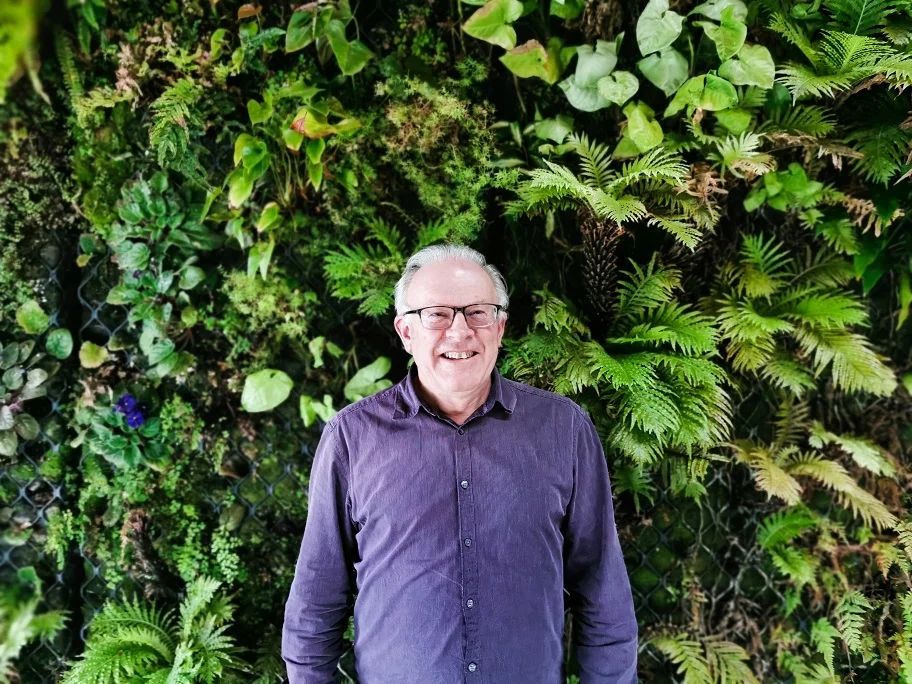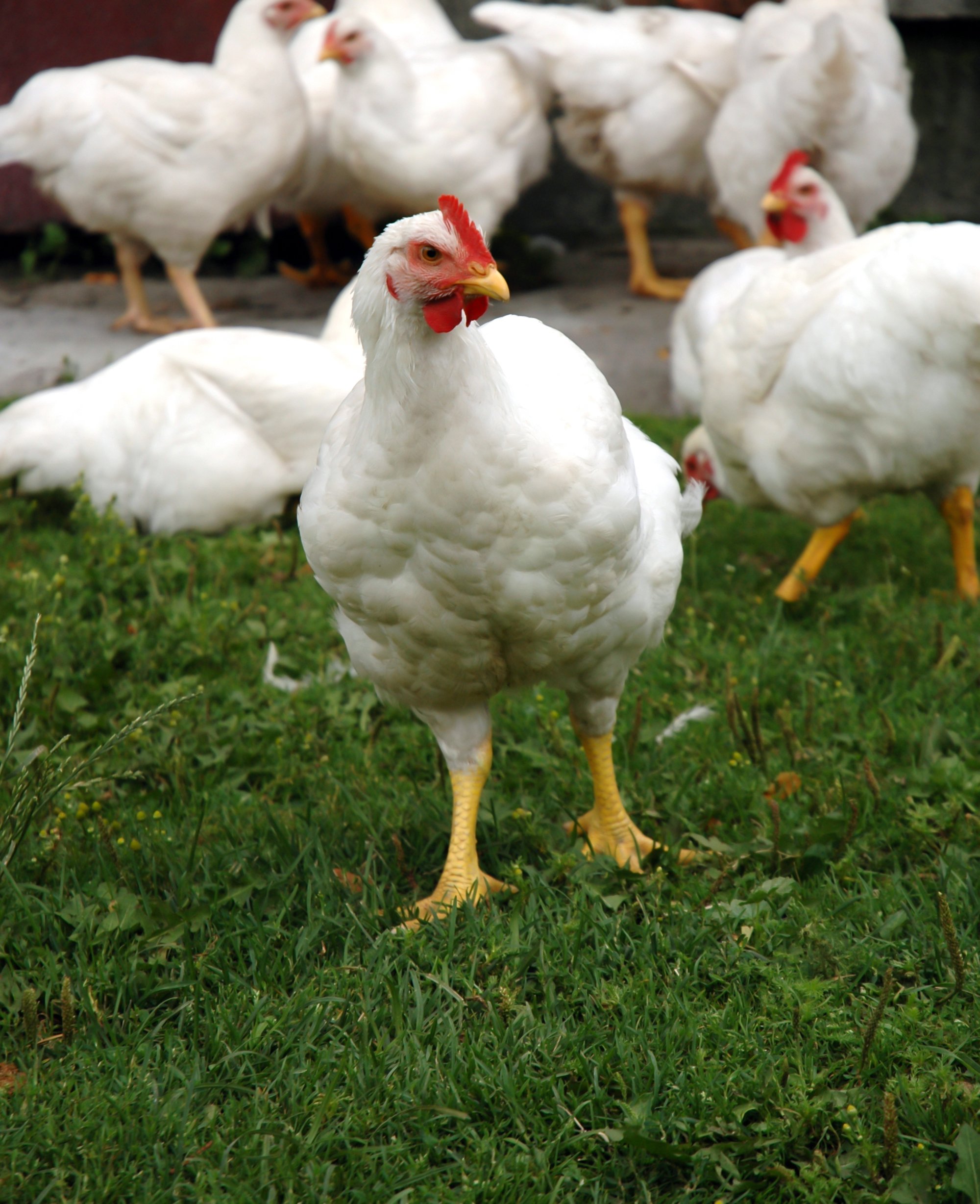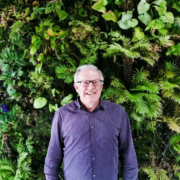Worried about ‘free-range’ chickens? Choose organic!
/in Farming and Horticulture, Food, Media Releases, Organic Community, OrganicsMEDIA RELEASE 3 May 2019
“The only way to ensure that the chickens you are eating are genuinely free range is to choose organic,” says Marion Wood, co-chair of the Soil & Health Association.
She points out that there is no enforceable industry standard for free-range farming. Farms are regularly audited by the Ministry of Primary Industries for food safety standards, but these standards do not relate to auditing free-range farming practices.
“What this means is that the scope of a ‘free-range’ label on your chickens is actually very wide. People think of happy chickens wandering in a field, but the reality is that the label ‘free range’ can be used by farms that confine their hens to small spaces or subject them to overcrowding. In 2014, it came to light that a farmer had been selling cage eggs as ‘free range’ for over two years – something that slipped under the radar because there was no authority checking such claims.”
But if you choose certified organic chickens, says Soil & Health, you know that the hens are looked after and their quality of life guaranteed because the farms are audited every year.
To get BioGro certification, farms must not have more than 10 hens per square metre in fixed housing or 16 per square metre in mobile sheds. Hens must have unrestricted access to outside runs and access to fresh grass or a forage crop containing a diversity of species. Other organic standards are similar.
Marion Wood suggests everyone makes the change:
“Organic food is grown naturally without the routine use of synthetic pesticides or fertilisers. Certified organic chickens are healthy chickens with a good quality of life – something that the label ‘free-range’ alone doesn’t guarantee.”
Organics: the time is now!
/in Free Online, Magazine Articles, Organic Community, OrganicsWe need to lead the way
By Noel Josephson, CEO of Ceres Organics
First published in Organic NZ, July/August 2019

The growth of the organic market is significant such that within a relatively few years every major food retailer has felt compelled to have an organic offering even though organics is still a very small percentage of the total food market.
Organics is a consumer-driven market, which caught many major food companies off guard, in that it didn’t fit their model and vision of the market as driven primarily by price. Consumers were more future facing towards their health and the environment, and organics rightly captures that through farming that works with nature rather than conventional farming that tries to control nature.
What’s more the organic movement embodies principles of fairness and trust, and holds some of the answers to climate change, working with social issues, economic development and community development. All of this resonates with the shift of conscious towards realising that capitalism, technology and science are not perfect and don’t have many of the answers we need to reverse the damage we are doing to the earth and humankind.
For these reasons the swing of awareness towards organics has passed the threshold where it has now become of interest to the government and the push to legislate for a national standard is overdue. But if we in the organic sector sit back we risk letting this opportunity slip away at the very time when we should be doubling our efforts.
Speaking with one voice
This is precisely the time to encourage good leadership in our sector organisations to unite the movement to speak with one voice to government, and create a comprehensive plan for organics that the sector fully supports.
Any division in the movement opens the door to others taking the lead and government downplaying our voice. We need to speak with one voice representing the domestic market, the export market, growers, processors, certifiers and consumers. We need one voice representing the larger commercial interests in organics and the innovators and leaders of the organic movement who carry its ideals and values. We need one voice to ensure the standards that sit behind the legislation are primarily held within the organic movement and reflect the common interests of those directly involved in organics.
What is our vision of organics and how can we inform government of what is required? We should be approaching multiple government departments talking about the benefits of organics and what is needed.
Funding organics for success
We should orchestrate multiple channels of funding towards sectors of organics that need support, such as financial support and encouragement of farmers to transition to organics, education and advisory services to farmers, research to establish best practice and quantify data to underpin those practices, consumer awareness of organics and its benefits. These all need funding if organics is to succeed.
We can’t just think when legislation passes it will all happen – that is too late. Do we know what will come our way in terms of financial support? Is this something we have contributed to or are we just accepting what’s given to us by a government that’s just starting to understand organics, let alone know what it needs? A whole plan, together with the funding channels, needs to be on the table now.
The many solutions organics offers
Organics Aotearoa New Zealand (OANZ) as the peak body of the organic sector is in the best position to canvass the organic sector, build a comprehensive picture of what is required, and place this before government.
It is in the interests of the government to listen to ways of reducing greenhouse gas emissions, getting a greater return from agriculture as one of the major pillars of the economy without further intensification of agriculture from existing land.
It is in their interest to understand how we can move towards less polluted land and more productive soils, cleaner waterways and air quality, greater biodiversity as well as how to spend some of their $3 billion on regional development for a good return.
Some of the most pressing problems the government is looking for answers to are exactly the ones organics can bring substance to, and this places us in a strong position to engage and bargain with the government.
We cannot leave the door ajar
We should be keenly aware of the experience of organic movements in other countries at the stage we are at, where they didn’t ask up front for their needs and it goes on to the back burner as an issue to be dealt with in the future. Meanwhile the organic movement struggles and never fully develops its potential.
We should also think of the agendas of those interests that will lose out from a strong organic movement and in any vacuum we create, they will quickly fill it with their vision of how to proceed.
The pressure created by consumer demand for organics growing far faster than farmers and land are converting to organics already creates a tension that could undermine the organic movement. Demand will push commercial interests to meet it, and if the supply is not there the temptation to lower the standards to up supply will work its way into the organic movement. Therefore a strong push from the outset with government support to convert more farmers to organics will help keep the standards strong.
Our public image will make or break us
In the minds of many we are still fringe. The more we enter public consciousness the more we need to be leading the story.
Legislation will up our visibility and unless we are telling the story of the benefits of organics, interests that lose out (and who are more financial than us) will tell their story about Luddites and how we block ‘science’. You need only to see the bias in the Listener editorial at the end of April (on the purported benefits of GE ryegrass in decreasing methane emissions to alleviate climate change, and how science needed to trump the ideology of people who were opposed), to understand it doesn’t take much to paint us into a corner of being backward and blocking so-called progress. Once a public perception gains traction it takes a lot to change it.
This is the time we need leadership from our peak sector body, OANZ, to bring a renewed energy into our movement, together with a vision that encompasses the movement and stretches us to reach forward knowing that we are a strong partner for the government to work with.
The AGM for OANZ is yet to be announced but it is normally held in August. Through your membership organisation of OANZ encourage them to speak at the AGM with the purpose of activating organics in New Zealand.
OANZ
Organics Aotearoa New Zealand (OANZ) is the national voice of the New Zealand organic sector. Its member organisations include organic producers, processors, consumers, exporters and domestic traders. Soil & Health, the publisher of Organic NZ, is a member of OANZ.
The organic community mourns Jeanette Fitzsimons
/in Media Releases, Organic Community6 March 2020
The Soil & Health Association expresses deep condolences to the family
and friends of Jeanette Fitzsimons. Among Jeanette’s many roles, she was
a patron of Soil & Health for several years.
“Jeanette gave wise counsel and was a champion for the organic cause,”
said Marion Wood, chair of Soil & Health. “She lived her values by
farming organically with her husband Harry Parke.”
Over the years Jeanette and Harry hosted hundreds volunteers on the farm
through the WWOOF scheme, including Organic NZ editor Philippa Jamieson.
Ever practical, Jeanette also wrote articles for Organic NZ including
one on gorse control, and letters to the editor.
Soil & Health and the Organic NZ team are thinking of Harry and family
at this sad time.
Media contact: Philippa Jamieson, editor, Organic NZ, 027 547 3929
Community Support for a GE free Waikato – submissions needed by Monday 22nd January 2018
/in GE, Media Releases, Organic CommunityThe Soil & Health Association is encouraging the Waikato District Council to adopt precautionary provisions in the Waikato District Plan for any genetically engineered organisms that may be trialled or commercially produced.
The plan as currently drafted fails to regulate, or make any mention at all of GMOs.
“We want to ensure that the Council adequately protects the district from the significant adverse effects posed by GMO use by including strong precautionary GMO policies and rules into its District Plan,” says Soil & Health National Council member Marion Thomson.
“We call on the Waikato District Council to follow the lead of the other councils around New Zealand that have already adopted precautionary provisions and banned the outdoor release of GMOs via their local policy statements and plans,” says Marion Thomson.
“Provisions in the Waikato District Plan should be the same or similar to those in the Auckland Unitary Plan to ensure a consistent approach across Auckland and the Waikato and eliminate cross boundary issues,” says Thomson.
Auckland Council, Far North District Council and Whangarei District Council have all prohibited the outdoor release of GMOs and made field trials a discretionary activity with performance standards regarding liability and the posting of bonds.
GMOs threaten the economic sustainability of a wide range of agricultural activities that benefit from having GE-free status. This includes the many organic operations in the Waikato District, as well as non-organic dairy, forestry, honey, horticulture and other producers.
GE animal trials have been undertaken at AgResearch’s Ruakura research centre for several years, making the potential for GE escape or contamination of ongoing concern to Waikato residents.
“New Zealand has already seen several GE field trials breach the conditions of approval. No matter how carefully conditions are crafted, there inevitably remains a risk that they may be breached by poor management, human error, natural events such as severe storms or even sabotage,” says Thomson.
Current laws are inadequate to properly protect communities from the potential adverse effects of GE. There is no provision under the Hazardous Substances and New Organisms (HSNO) Act for financial liability for GMO contamination resulting from the release of an approved GMO, meaning those people or companies responsible for causing harm may not be held liable.
Once GMOs have been released into the environment, they would be very difficult if not impossible to eradicate. In the case of a food product, the GE-free status of a district would likely be lost permanently, along with the market advantages of that status.
Fortunately, under the RMA, requirements for bonds for remediation and to cover the costs of contamination can be included in district plans if local councils choose to implement them.
The Proposed Draft Waikato District Plan is now open for feedback, and Soil & Health is calling on Waikato residents to express support for precautionary and prohibitive GMO provisions, policies, and rules.
Submissions close on Monday 22nd January at 5pm.
Media contact
Marion Thomson, Soil & Health National Council
027 555 4014
GE Free from the Bombays to Cape Reinga
/in Farming, Food, GE, GM, Media Releases, Organic CommunityGE Free Northland and the Soil & Health Association are celebrating the Far North and Whangarei District Councils’ decisions to retain precautionary and prohibitive genetically modified organisms (GMOs) provisions in their new District Plans. This follows Auckland Council’s recent decision to retain similar precautionary and prohibitive GMO provisions in the new Unitary Plan. The result of which is a GE Free northern peninsula from the Bombay Hills to Cape Reinga.
Whangarei District councilors voted unanimously last week to protect the community, local economy, and environment from the risks of outdoor uses of GMOs. Their neighbours in the Far North voted a week earlier to introduce similar rules to their District Plan.
“These decisions, and our recent victory in the High Court, represent a huge win for Northland. Our elected representatives are to be congratulated for their tenacity and commitment in supporting the aspirations of their constituents and protecting our biosecurity,” said Martin Robinson, spokesperson for GE Free Northland.
In June this year, GE Free Northland together with the Soil & Health Association gathered a panel of expert witnesses, mana whenua, and community representatives, to present evidence to the independent commissioners at the councils’ hearings on GMOs. Both groups offered strong support for the District councils’ proposed precautionary approach to outdoor GE experiments, strict liability provisions, and outright ban on the release of GMOs.
“This is necessary because of serious deficiencies in the Hazardous Substances and New Organisms Act (HSNO Act). Government agencies have a poor track record in containing outdoor GE experiments, and the law has very limited liability provisions for damage” said Soil & Health Chair Marion Thomson. “The GMO policies they have now adopted are a sophisticated, collaborative, and fiscally prudent response.”
For more than a decade the Far North District and Whangarei District Councils have worked with the Auckland and Northland Regional Councils to plot a path that works for farmers, the wider community, and the environment. The councils’ decisions to adopt the independent commissioners’ recommendations help protect the Northland region’s GM Free status, biosecurity, economy, and environment by requiring additional local protections that are not required by the national regulator, the Environmental Protection Authority, under the HSNO Act, with an outright prohibition of release of GMOs.
“Environment Minister Nick Smith has tried to portray local bodies as anti-science and anti-progress. His claims are untrue, unjustly attempting to denigrate the robust course that our councils have charted,” said GE Free Northland’s Chair Zelka Grammer.
Despite the minister’s statements, the global Non-GMO food market is currently valued at US$250 billion, and trends show this is only going to grow. It is clear that New Zealand producers benefit from access to this huge non-GMO market.
Soil & Health and GE Free Northland combined represent more than 10,000 members and supporters, including primary producers and consumers, both organic and conventional, who want to avoid genetically modified organisms and products made from them.
CONTACT
Marty Robinson
Spokesperson, GE Free Northland
022 136 9619
Marion Thomson
Chair, Soil & Health Association
027 555 4015
Zelka Linda Grammer
Chair, GE Free Northland
022 309 5039
Landmark merger a win-win for organic sector
/in Media Releases, Organic CommunityThe organic community celebrated the landmark merger of two long-established charitable organisations yesterday. Members of the Soil & Health Association of NZ Inc and the New Zealand Biological Producers and Consumers Society Inc (BioGro Society) voted in favour of the proposal. This means that the Society will transfer its assets to Soil & Health, on winding up on 30 September.
The merger brings together the skills and resources of the two charities into one strong, unified organic sector body.
Soil & Health will become the proud new owner of BioGro NZ Ltd, New Zealand’s largest organic certification agency. This will empower Soil & Health to carry out its vital education and advocacy work for healthy soil, healthy food and healthy people.
BioGro NZ Ltd will remain a separate company. It retains its own board of directors and independence as a company, with the excellent reputation it has built up over 33 years.
“It’s time to get really serious about lifting organics to the next level,” said Gaz Ingram, chair of BioGro Society. “Organic needs to become the new normal. It offers clean, green and practical solutions to many of our current problems, including environmental, health and climate change issues. The refreshed organisation will promote these with renewed vigour.”
“If we and future generations are going to survive and thrive, we urgently need to shift to producing food and other products that are organic, high value, safe, sustainable, GE-free and ethical,” said Marion Thomson, co-chair of Soil & Health. “By joining together we combine our strengths in leadership and governance, authenticity, public good advocacy, and commitment to healthy organic food and farming.”
The Soil & Health Association retains its name, as does BioGro NZ Ltd. Soil & Health’s flagship magazine Organic NZ will continue to be a strong and independent media voice for all things organic: food, gardening, farming and lifestyles.
Media contacts
Marion Thomson
Co-chair, Soil & Health Association
027 555 4014
Gaz Ingram
Chair, BioGro Society
027 511 8097
BACKGROUND NOTES
- The Soil & Health Association is the largest membership organisation supporting organic food and farming in New Zealand. In 2016 it celebrates its 75th anniversary. Soil & Health was founded in 1941 as the Humic Compost Club by New Zealanders who were concerned about degraded soils, increasing refined foods, and the links of both of these with declining nutrition.
It promotes sustainable agricultural practices and principles of good health based on sound nutrition and the motto ‘Healthy soil – healthy food – healthy people’. Soil & Health’s magazine Organic NZ goes out to members and to the public via retail outlets six times a year.
www.organicnz.org.nz
- The New Zealand Biological Producers and Consumers Society was formed in 1983 by Soil & Health, the Biodynamic Association and the Henry Doubleday Research Association, who all saw the need for a credible and internationally respected organic standard and certification process, in order to safeguard the interests of producers and consumers.
BioGro NZ Ltd (a company owned by the BioGro Society) is the premier organic certification agency in New Zealand. It certifies and accredits over 600 producers in New Zealand and the Pacific, is accredited to IFOAM (International Federation of Organic Agriculture Movements) and has an excellent reputation with domestic and export markets.
www.biogro.co.nz
Honouring the Warrior Queen of Organics
/in Media Releases, Organic CommunityOne of New Zealand’s oldest advocates of organics, Marguerite Jones, has died at the age of 95.
Famous for wearing her ‘Don’t panic, go organic!’ sign at stalls and expos, and always resplendent in vibrant, colour-coordinated outfits, this feisty woman has been an inspiration to many and was a living example of a healthy lifestyle through good diet and nutrition.
Marguerite was a founding member of the Soil & Health Association (publisher of Organic NZ), having joined the organisation at its first meeting in 1941, when it was called the Humic Compost Club. For decades she tirelessly promoted organics, natural health and good animal welfare by sharing wisdom, common sense and laughter in her forthright style.
“Others get awarded honours and yet have poisoned Aotearoa,” said Steffan Browning, Green MP and former spokesperson for Soil & Health. “Marguerite was a champion to the end – not seeking acclamation or reward, but driven for the health of present and future generations.”
“Marguerite was a tenacious leader who was so loved for the strength of her convictions,” said Brendan Hoare, chief executive of Organics Aotearoa and a former president of Soil & Health. “For the right and just cause, she embodied the meaning of relentlessness; always in support, never giving in, always grounded in the daily practice of health (starting with her garden) and wellbeing for herself and those around her.”
Marguerite grew up on a farm in the Manawatu that supplied her family with fresh vegetables, eggs, raw milk and butter. A life-long gardener, she credited her good health to fresh organic food. She shunned pharmaceuticals, preferring nature’s medicine cabinet and, until the last few months of her life, had never taken antibiotics.
In 2002 Marguerite was made a life member of the Soil & Health Association, and was the Association’s patron from 2004–2006. She also campaigned for improved animal welfare and was a founding member of the New Zealand Anti-Vivisection Society.Organic NZ will include an obituary and memories of Marguerite in its September/October issue.
Marguerite Jones passed away peacefully at her home in West Auckland on Monday 20 June. A celebration of her life will be held on Saturday. Soil & Health offers condolences to her family and friends.
More information about Marguerite’s life:
http://www.feedmeright.co.nz/pdf/ONZ_Nov_Dec11MargretJones.pdf
Together we can keep Aotearoa GE-free!
/in GE, GM, Media Releases, Organic CommunityOne of the world’s oldest organic organisations is now using crowdfunding to help keep New Zealand’s valuable GE-free status.
The Soil & Health Association of New Zealand, founded in 1941, has just launched a Givealittle page to appeal for donations from a wide range of Kiwis who want a clean, green, GE-free Aotearoa.
Recently, Soil & Health has been defending the rights of councils to control the use of genetically modified organisms (GMOs) in their regions under the Resource Management Act.
Soil & Health’s new Givealittle page will help Kiwis contribute towards the costs involved in the High Court case held in Whangarei in February 2016. Soil & Health joined with others in the High Courtto protect Northland Regional Council’s ability to decide whether or not GMOs are released or field-trialled in Northland and, if so, whether any conditions should be placed on them. Soil & Health anticipates similar court cases in the future, so is also seeking funds now in preparation for these.
Any donations or financial support would be greatly appreciated and can be made viahttps://givealittle.co.nz/cause/soilandhealthstandagainstge.
Together we CAN keep Aotearoa GE-free!
For more information on the court case, visit: https://soilandhealth.org.nz/node/1102
For more information and GE and GMOs, visit: https://soilandhealth.org.nz/node/571




